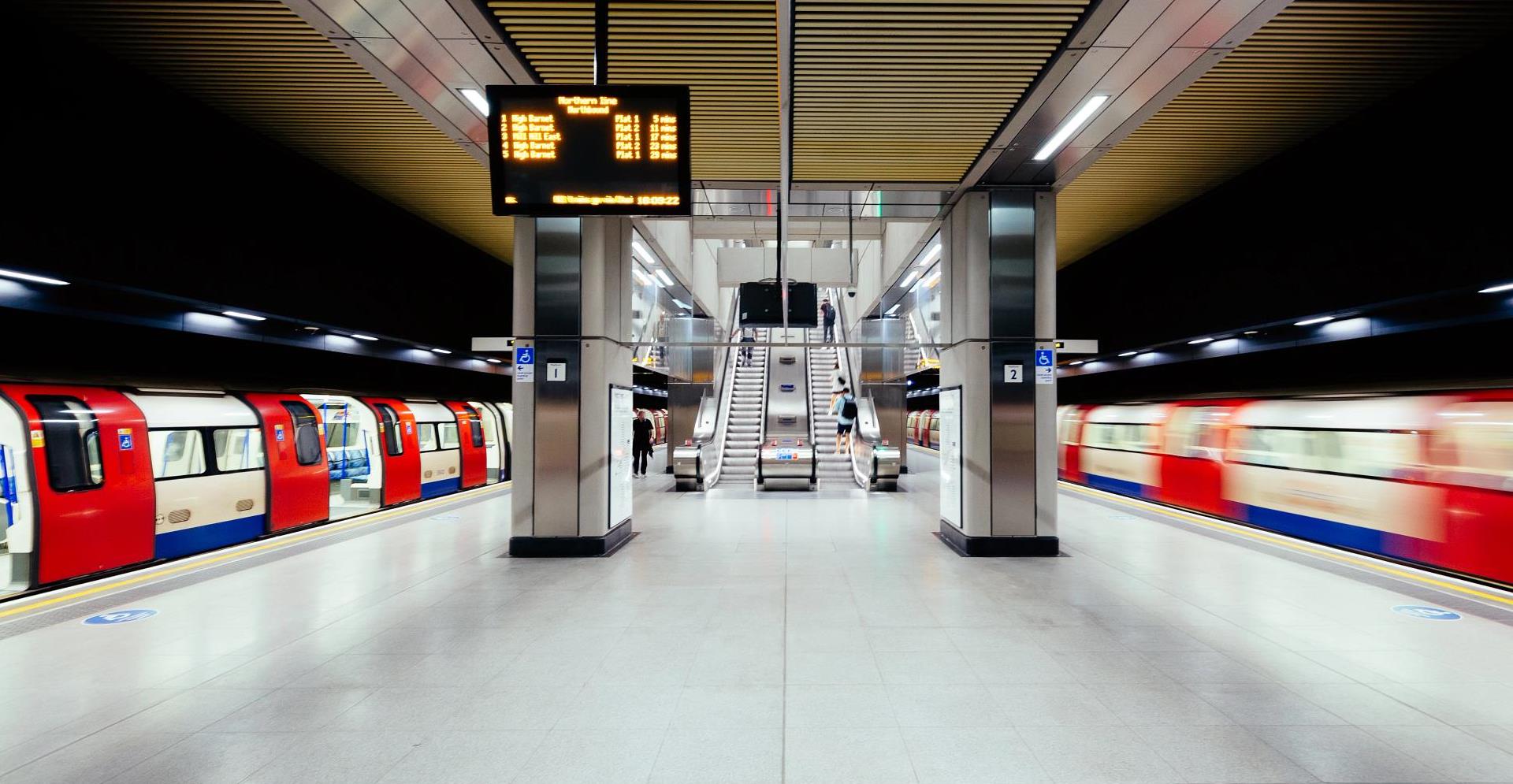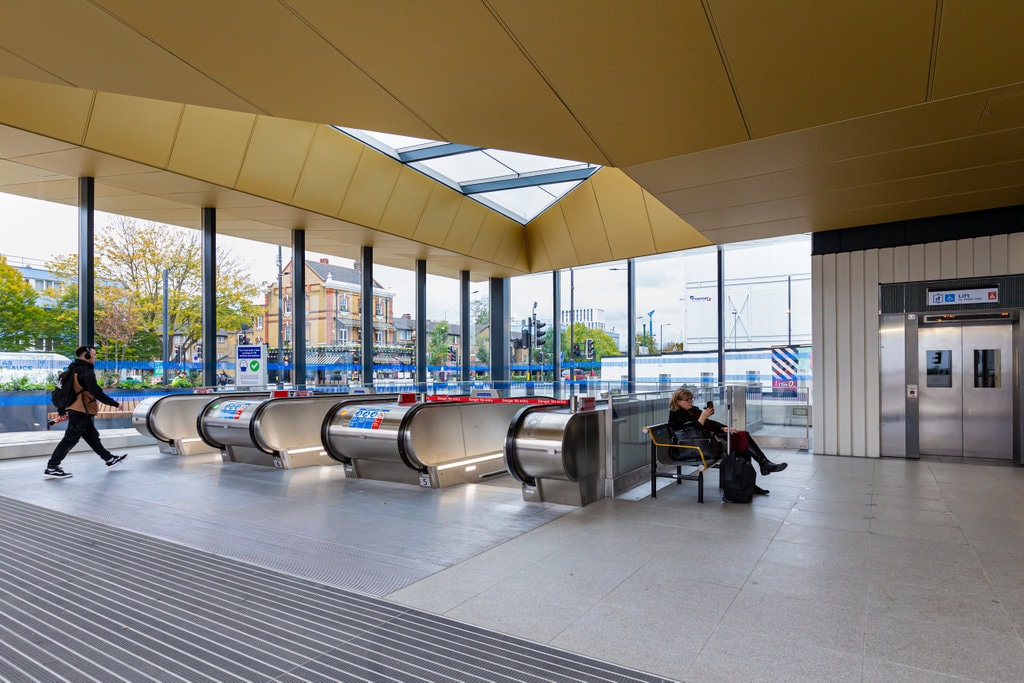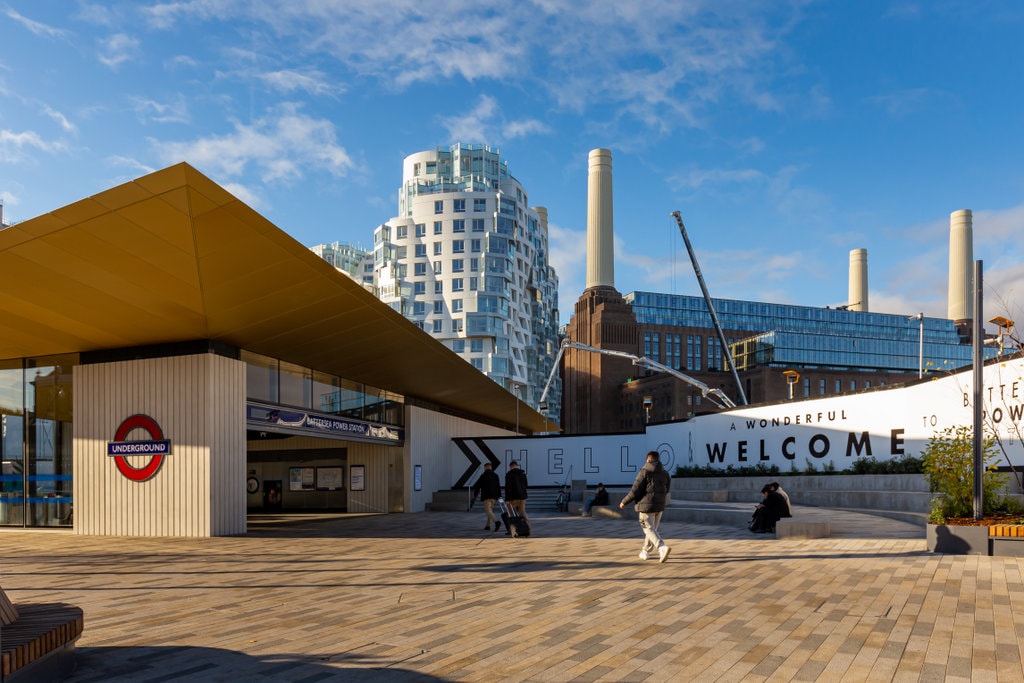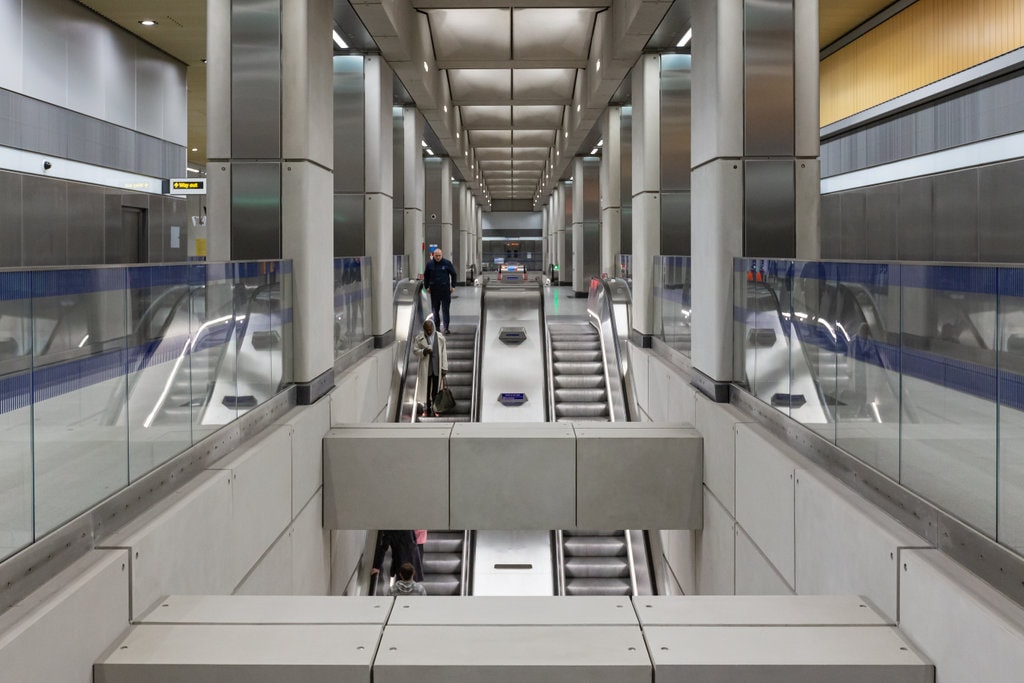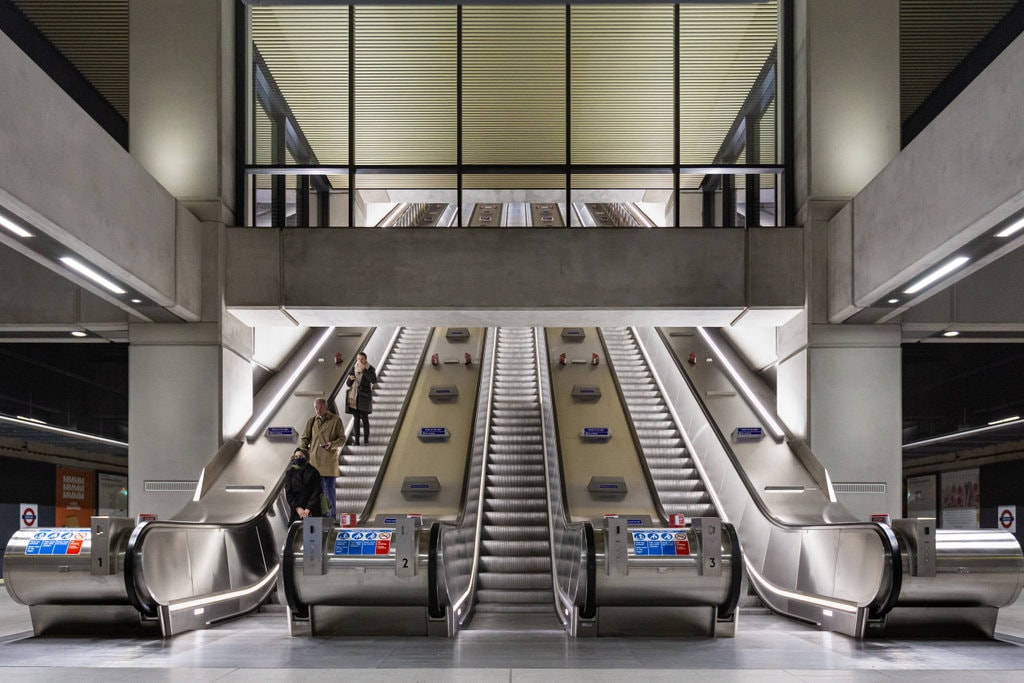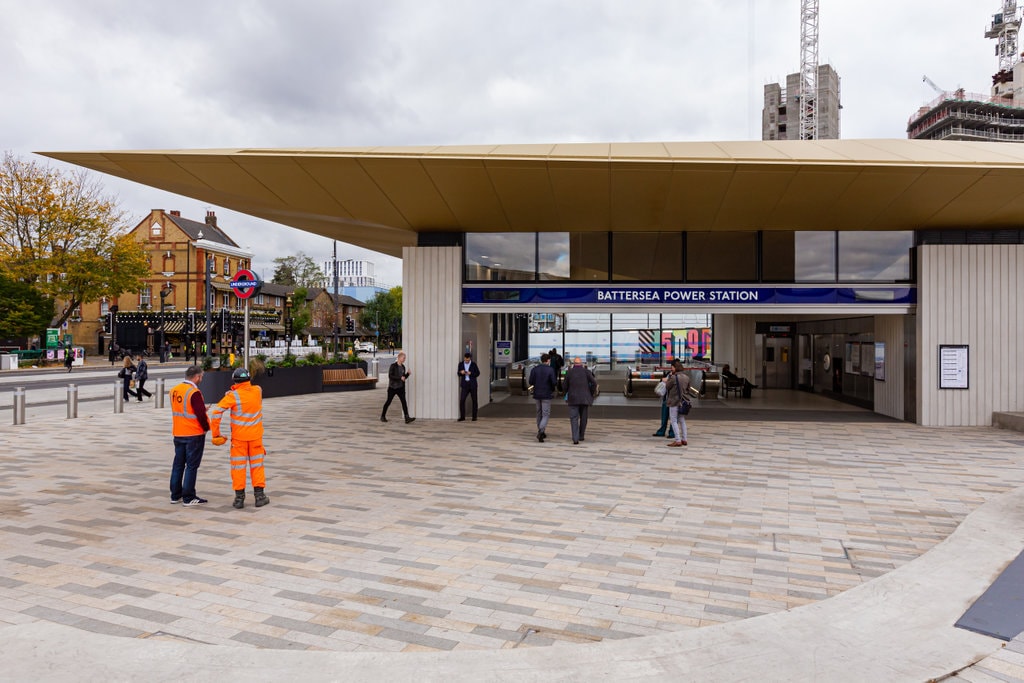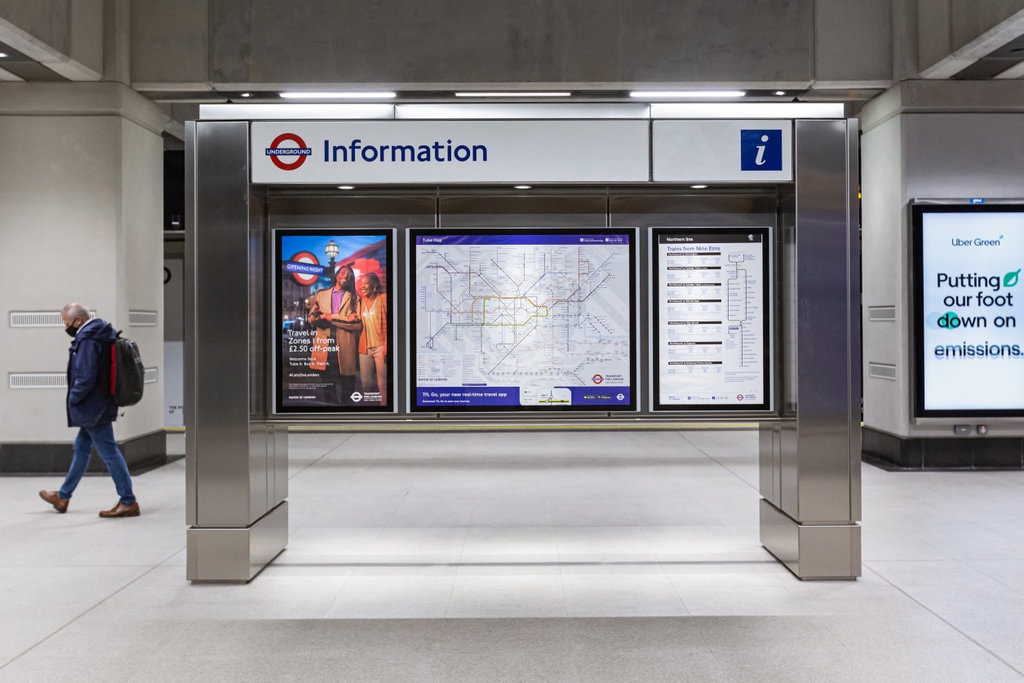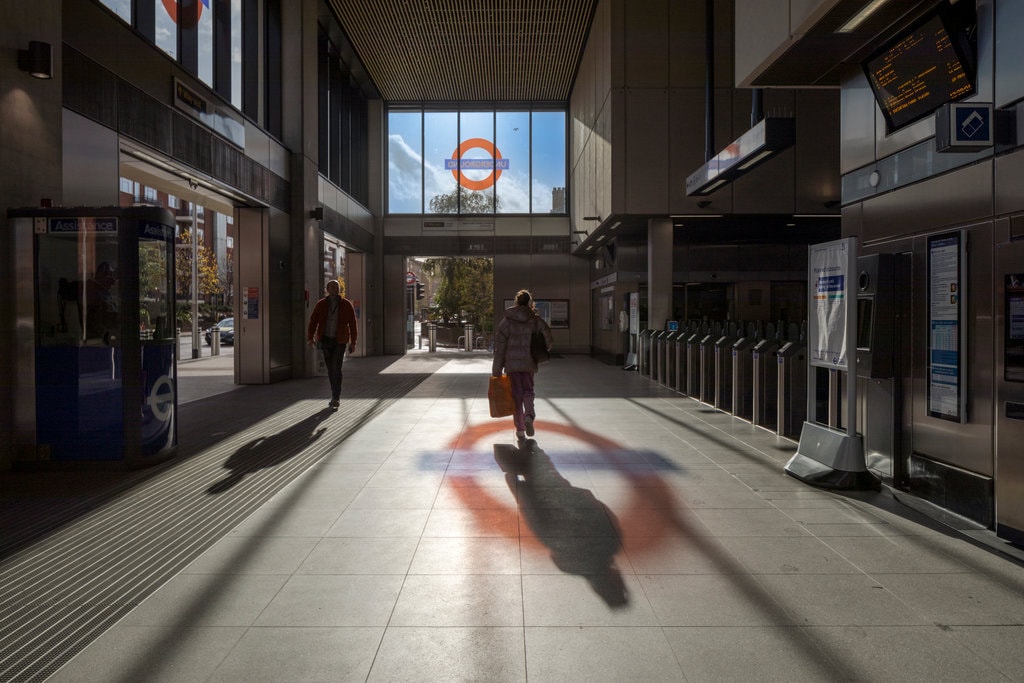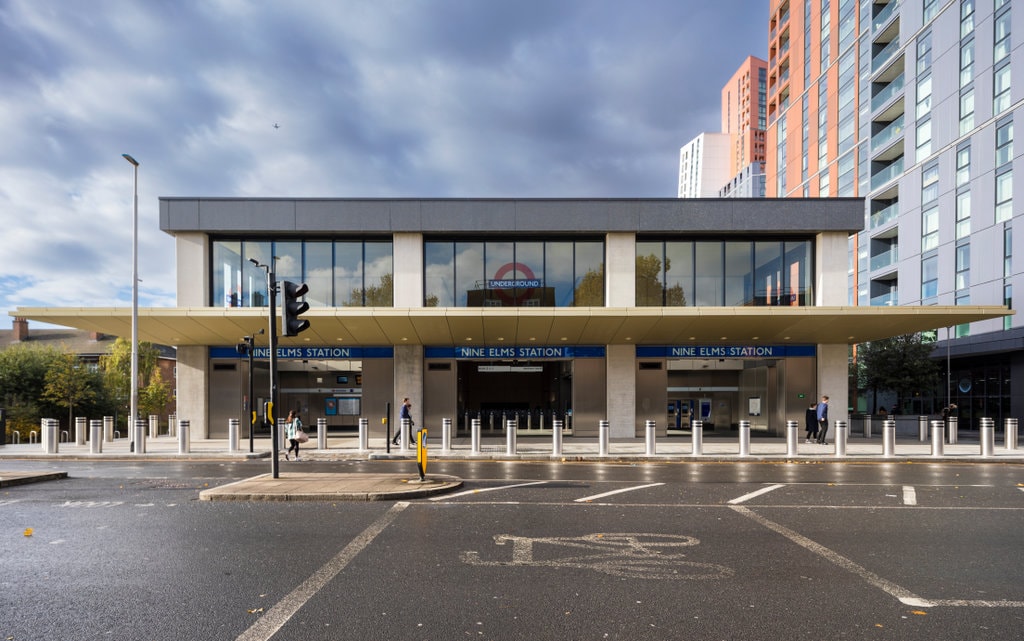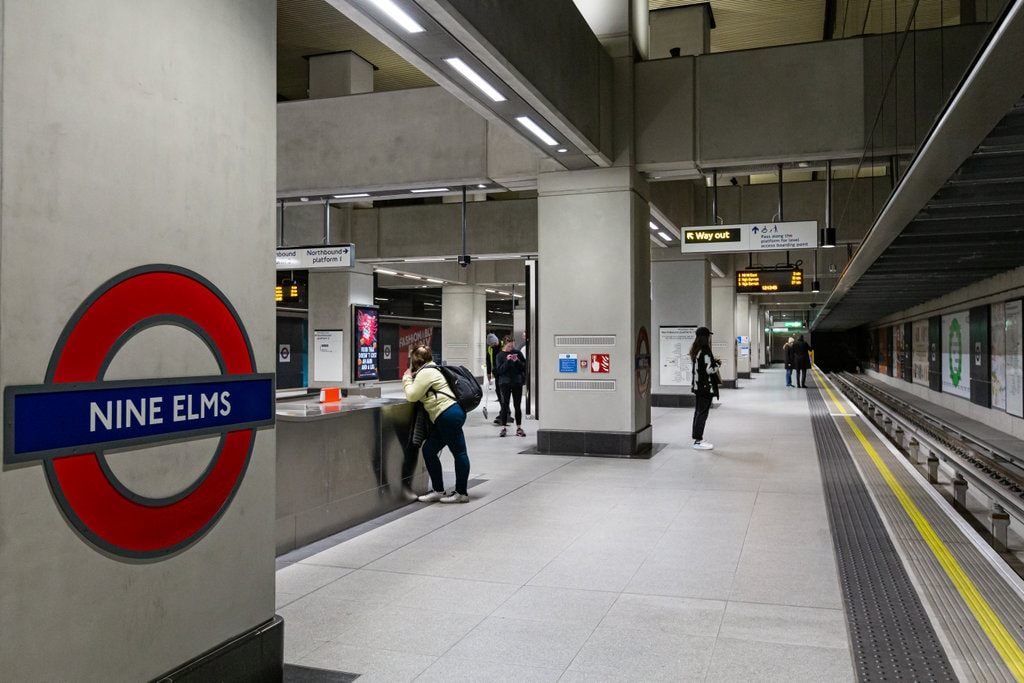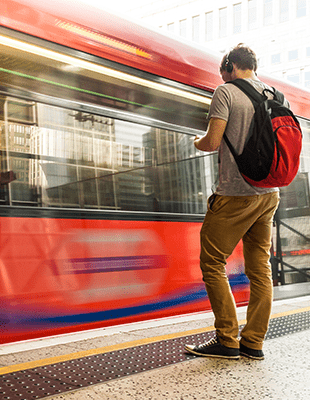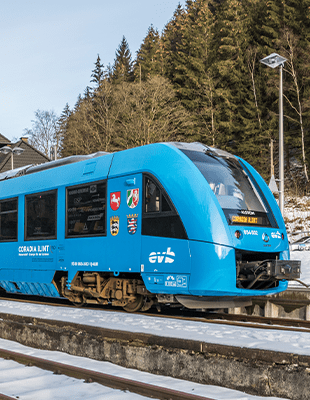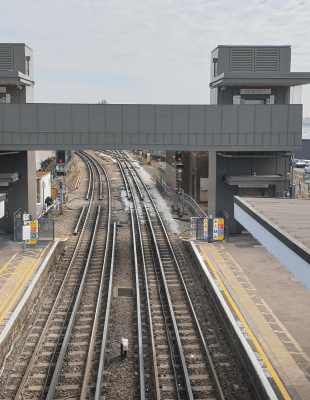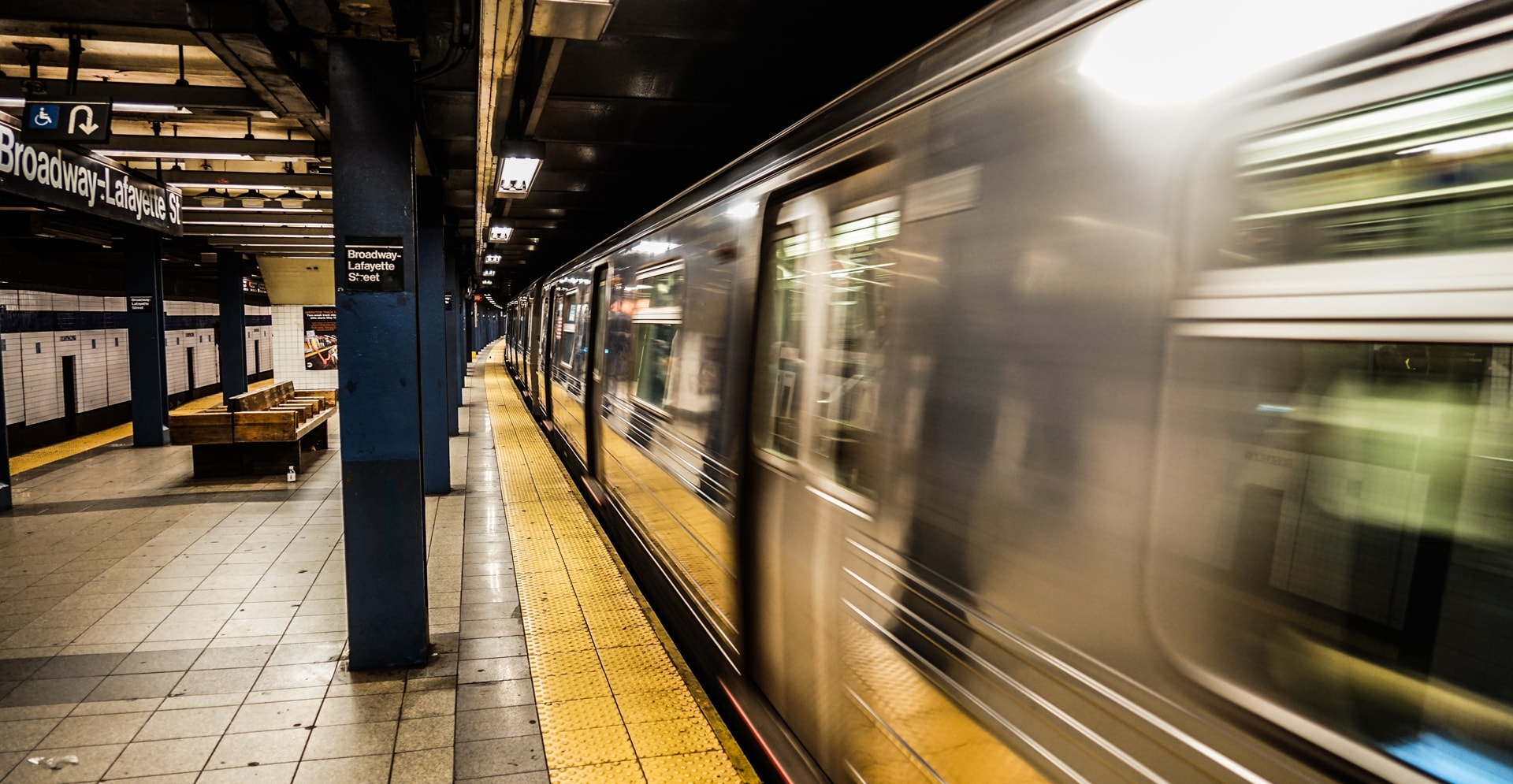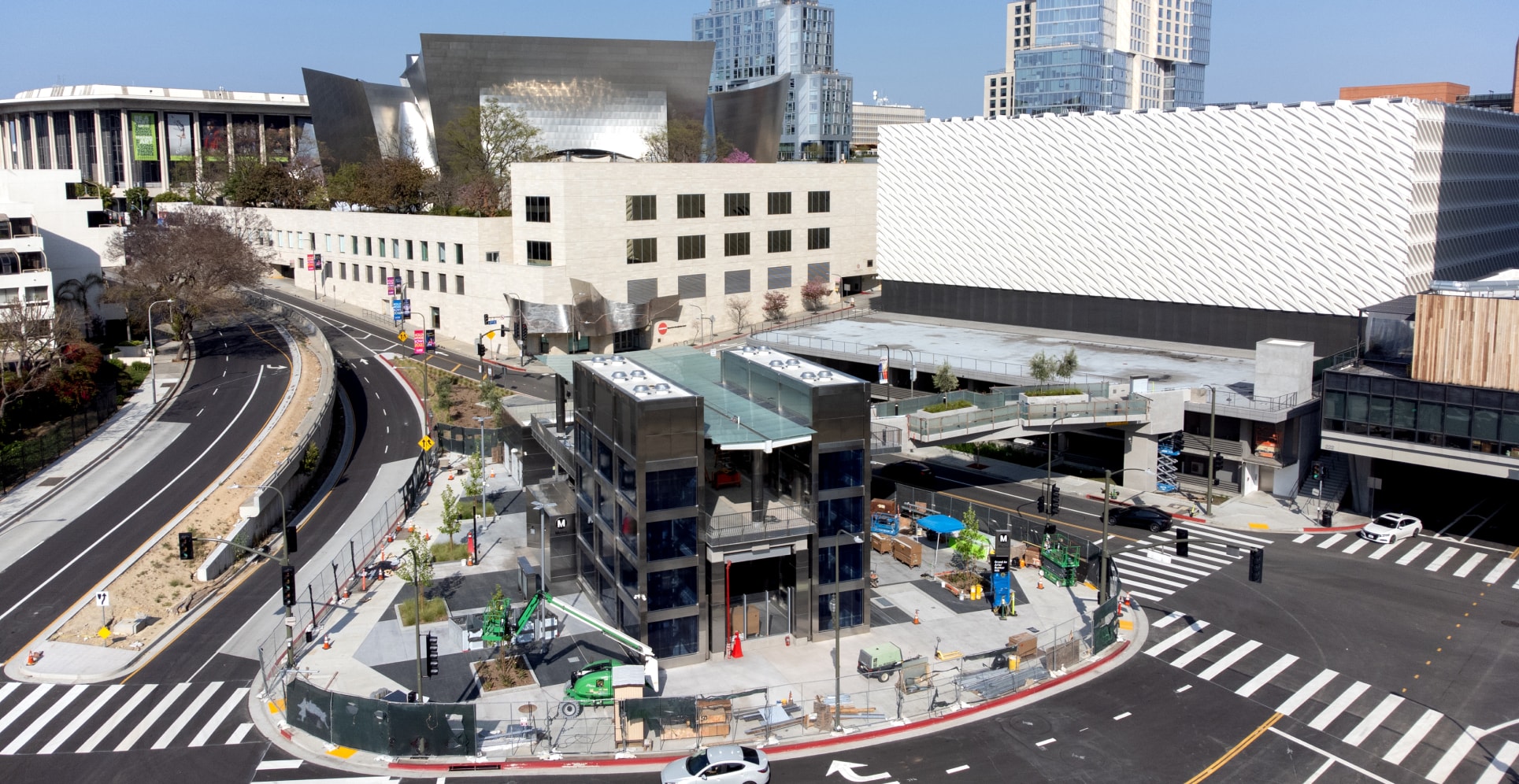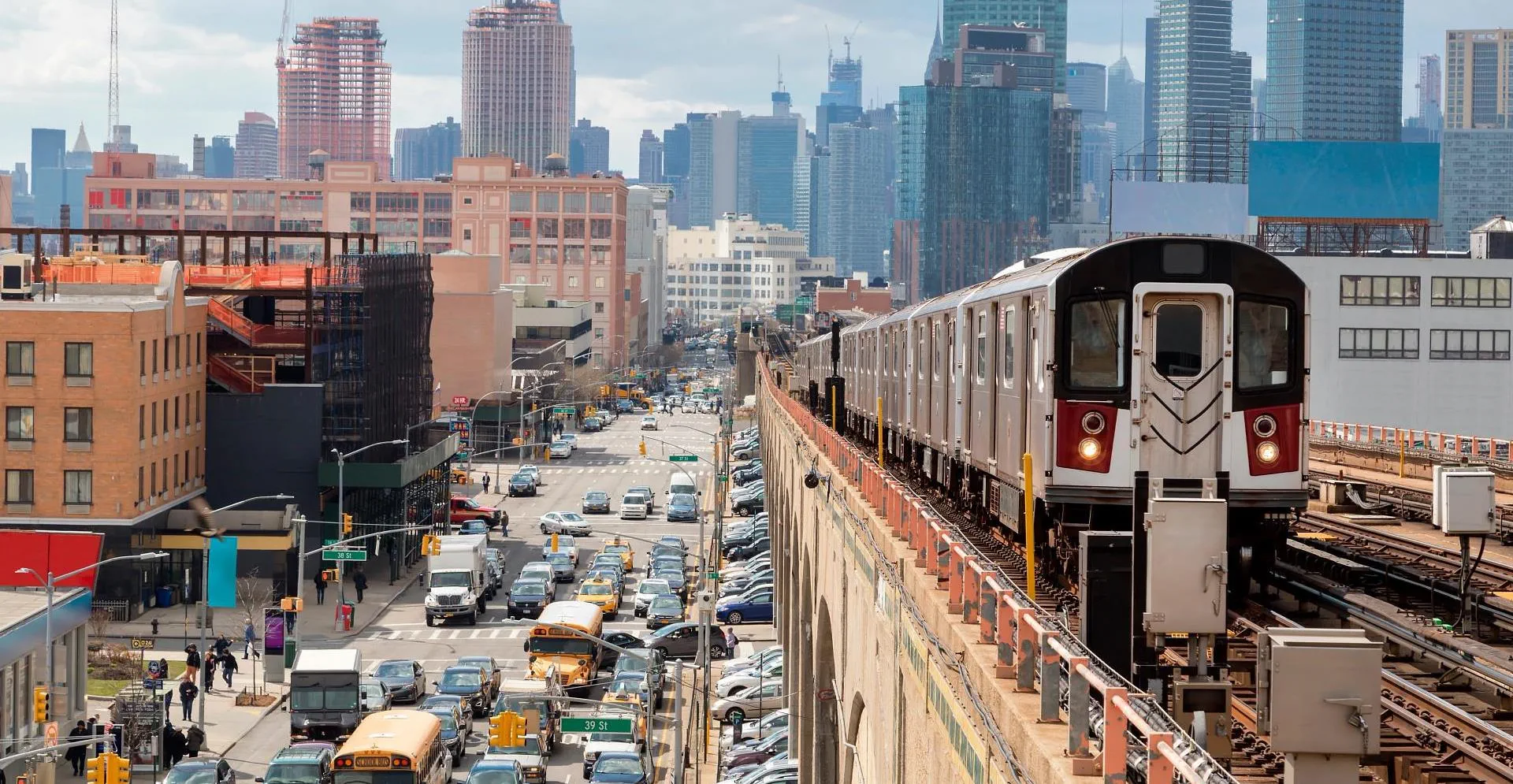Table of Contents
The challenge
Driven by the need for reliable, easy access to the London Underground and economic revitalization, TfL decided to extend the Northern Line.
50%
The London Tube is perhaps the world’s best known underground system and the heart of the city’s transportation network. The Tube is a sprawling grid of tunnels, railway tracks, and stations that supports up to 4 million passenger journeys each day. During peak hours more than 540 trains are moving around the British capital. For the people living in London, the Tube is a critically important means of moving throughout the city and therefore a significant part of their lives.
Our client, Transport for London (TfL) administers and maintains the London Underground network, with an eye towards ensuring people have reliable, easy access to trains that can help them quickly travel around the city. With this in mind, TfL made the decision to extend the Northern line and build two new stations at Battersea Power Station and Nine Elms. TfL planned the Northern Line Extension not only to make it much easier for people to travel from this area to other parts of London, but also with the goal of spurring on an economic revitalization of this part of the city. This massive project was budgeted at more than 1 billion pounds and we partnered with TfL to help ensure its successful delivery.
The solution
Over a period of six years, a 3 km long twin-bore tunnel and two new stations at Battersea Power Station and Nine Elms were built.
25, 000
new jobs
Major construction started on the Northern Line Extension in 2015 and involved drilling a twin-bore tunnel 3 kilometres in length underneath one of the world’s most populated and built-up cities, without damaging the buildings on the surface. New tracks, signals and power installations were also put in place for the trains and the first new stations added to the Northern line in 80 years were built at Battersea Power Station and Nine Elms.
Our team of experts provided a comprehensive range of integrated services to help TfL successfully deliver this ambitious and critical project over a six-year period. We played a significant role in providing commercial management services for the civil engineering and railway systems. As well as leading the cost management function through to completion and closeout, our team supported TfL's commercial function in managing the main design and build NEC Option C contract across multiple disciplines. This included civils, fit out, M&E and other crucial railway systems contracts. Through the preparation and maintenance of an integrated master schedule, we ensured seamless coordination between engineering, tunnelling, and railway systems activities, contributing to the successful delivery of the project. Additionally, we undertook contract administration duties on behalf of TfL for the Land and Works Agreement with the Battersea developer.

The impact
The Northern Line Extension has cut travel times for Londoners and stimulated the development of new jobs and homes.
£160M
under budget
The Northern Line Extension has significantly enhanced Londoners’ ability to get around in the city. Now people can travel from the Battersea and Nine Elms area to the City and West End up to 17 minutes faster than before the extension, a 50% decrease in travel time. The Tube stations at Battersea and Nine Elms support 150,000 and 75,000 trips, respectively, each week.
The Northern Line Extension is also supporting around 25,000 new jobs and more than 20,000 new homes. We helped TfL deliver the Northern Line Extension 160 million pounds under budget, despite the challenges caused by the COVID-19 pandemic. The project also excavated 850,000 tonnes of material, which was transported on barges on the River Thames to Essex, where it was used to create farmland. This eliminated spoil removal by trucks, reducing road traffic by nearly 50,000 HGV wagon movements, and significantly reducing the carbon footprint of the project. The project achieved an “Excellent” rating on the Interim CEEQUAL assessment. All sites have been awarded ‘Gold’ status from the Construction Scheme.
Behind the solution
Not done reading?
This also might be interesting for you
- Related Projects
- Related Insights
- Related Blogs


